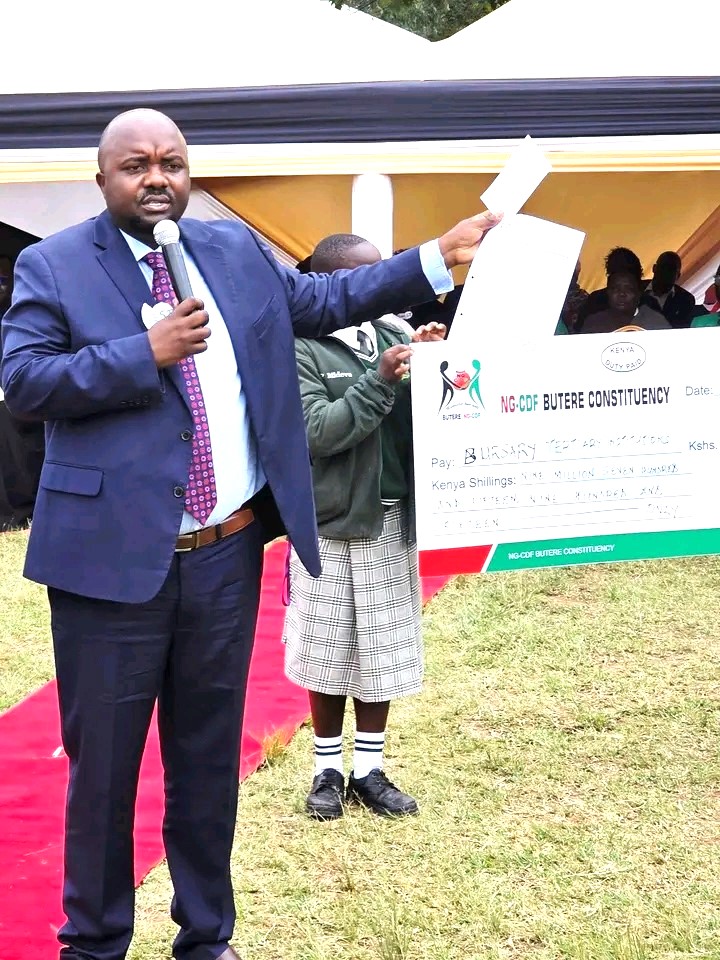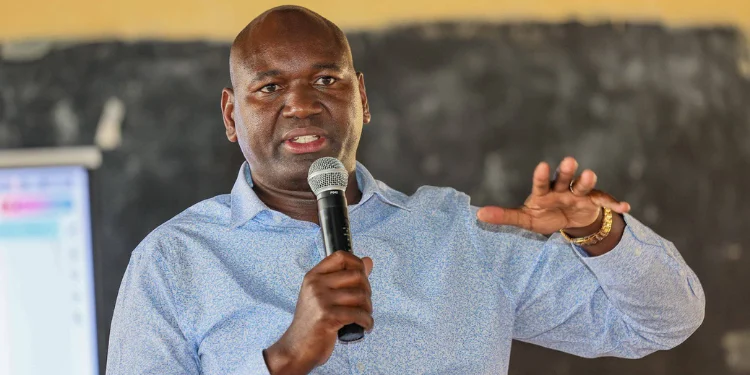As the national examinations draw closer – KPSEA for Grade 6 learners, KJSEA for junior secondary candidates, and KCSE for high school finalists – anxiety begins to rise, and tension builds up across homes and schools. These assessments are not just tests of knowledge; they are milestones that mark the end of a learning phase and pave the way for the next. With only days to go, the manner in which candidates revise could make all the difference between success and disappointment. At this point, it is no longer about covering the entire syllabus, but rather consolidating what has already been learned, fine-tuning exam skills, and nurturing a calm, confident mindset. Smart revision, not endless study hours, yields the best results.
Candidates should begin by narrowing their focus. With limited time remaining, trying to study everything will only lead to confusion and exhaustion. Instead, one should identify the topics that have consistently appeared in past exams or those emphasised by teachers. These areas are likely to carry significant weight in the upcoming papers. Learners should also take time to revisit the subjects or topics they have always struggled with, not necessarily to start teaching them afresh, but to clarify key points and remove lingering doubts. Revision at this stage should focus on strengthening weak points and reinforcing what one already knows, rather than attempting to master new material hastily.
Past papers are a treasure that many overlook or use incorrectly. Going through previous examination questions under timed conditions gives candidates a realistic feel of the exam environment. It helps them understand how questions are framed, how marks are distributed and how much depth examiners expect in answers. KCSE candidates, in particular, should practice with at least one full paper per subject each day, reviewing their mistakes immediately afterwards. By comparing their responses with marking schemes, they gain insight into how to phrase answers concisely and how to avoid losing marks through unnecessary information. KPSEA and KJSEA candidates can equally benefit from practice tests that mirror the national exam format, as these boost confidence and time management skills.
To maximise understanding, revision should be active, not passive. Simply reading notes from start to finish is less effective than summarising and rewriting key points in one’s own words. Learners can create quick-reference cards, mind maps, and summary sheets that highlight formulas, definitions, and critical dates or processes. These visual tools aid memory retention and serve as valuable aids during last-minute reviews. Some students find it helpful to pin summary charts on their walls, especially for subjects such as sciences and social studies, where visual recall plays a key role.
Teaching someone else what one has learned is another effective way to reinforce knowledge. When a student explains a concept to a peer or family member, it compels them to organise their thoughts and express their ideas clearly. This method reveals gaps in understanding that might have gone unnoticed when studying alone. Forming small, focused discussion groups is also beneficial, but only if the sessions are disciplined and time-bound. Group study should be used to compare understanding, clarify doubts and share mnemonics rather than to engage in idle talk or competition.
Memory aids are especially useful during these final days. Mnemonics, acronyms, rhymes, and short stories can help candidates recall sequences, formulas and classifications with ease. For example, trigonometry students rely on the “SOH CAH TOA” mnemonic to remember the sine, cosine, and tangent relationships. At the same time, biology learners use creative acronyms for taxonomy or the food chain. Such tools are easy to recall under pressure and can make the difference between partial and complete marks in a question.
A balanced study schedule is essential. Concentrating on one subject for too long leads to fatigue and diminishing returns. Learners should rotate between subjects of different natures – for example, starting the morning with a demanding paper like Mathematics or Chemistry, switching to a reading-based subject like English or History in the afternoon and ending the day with a practical or creative subject. This variety keeps the brain stimulated and reduces burnout. Taking short breaks between sessions, such as a brief walk, stretching, or even a snack, refreshes the mind and enhances concentration.
At this point, candidates must remember that rest is part of revision. A tired mind forgets even what it knows well. Adequate sleep of seven to eight hours per night keeps memory sharp and focus intact. Late-night cramming only breeds confusion and stress. Equally important is maintaining a balanced diet, rich in energy-giving foods, fruits and hydration. Avoiding excess caffeine and junk foods will prevent fatigue and irritability. Physical exercise, even for ten minutes a day, can help release tension and improve mental alertness.
READ ALSO:
Litein Boys parents to pay Ksh69.5 million over September unrest damage
Exam success is not only about knowledge but also about technique. Candidates should rehearse how to approach different question types. They must read instructions carefully, underline key verbs like “explain,” “describe,” or “evaluate,” and tailor their answers accordingly. It is wise to start with questions one is most confident about to gain momentum and secure early marks. Time management is critical – no question should consume more than its fair share of time. Towards the end of the paper, learners should spare a few minutes to review their answers, check spellings and correct simple errors. In objective tests such as KPSEA, shading correctly and avoiding double markings are just as important as knowing the correct answer.
With only days remaining, mental composure is more valuable than panic-driven effort. Learners should establish a light but focused timetable for the remaining days, ensuring that all subjects receive adequate attention. The plan should include revision blocks, rest periods and moments of reflection. The goal now is not to rush through content, but to refine performance and build confidence. Constant comparison with others or obsessing over unfinished work only fuels anxiety. Each candidate should focus on their own strengths and trust their preparation.
In these final moments, maintaining a positive mindset is paramount. Self-doubt and fear can undo months of effort. Positive affirmations, calm breathing, prayer or meditation can help centre the mind and restore confidence. Teachers and parents also play a crucial role in creating an encouraging environment that reassures candidates instead of pressuring them. Emotional support can significantly enhance performance by helping learners remain composed during the actual examination.
Ultimately, success in KPSEA, KJSEA or KCSE is not determined in the last few hours before the paper but in how intelligently one revises and how calmly one faces the test. A student who studies wisely, rests adequately, eats well and believes in themselves has already won half the battle. With discipline, focus and faith, every candidate can walk into the examination room with their head high, ready to translate years of effort into the results they deserve.
By Ashford Kimani
Ashford teaches English and Literature in Gatundu North Sub-county and serves as Dean of Studies.
You can also follow our social media pages on Twitter: Education News KE and Facebook: Education News Newspaper for timely updates.
>>> Click here to stay up-to-date with trending regional stories
>>> Click here to read more informed opinions on the country’s education landscape
>>> Click here to stay ahead with the latest national news.






